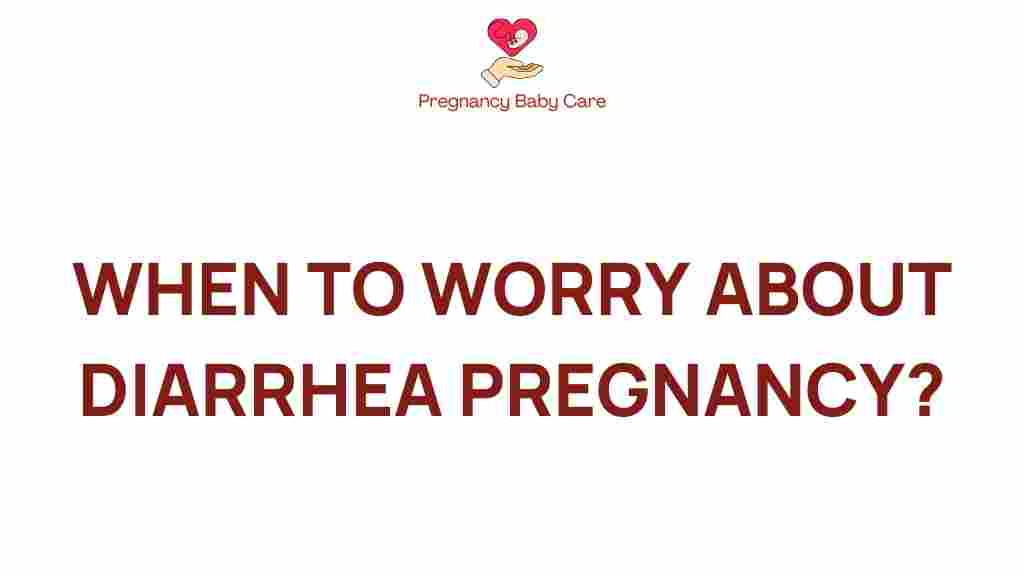Pregnancy is a beautiful journey, but it can also bring along a variety of health challenges. One common issue that many pregnant women face is diarrhea. Understanding the causes, symptoms, and when to seek medical advice is crucial for maintaining both maternal health and the well-being of the developing fetus. This article will guide you through the intricacies of managing diarrhea during pregnancy, focusing on hydration, digestive issues, and the importance of prenatal care.
Understanding Diarrhea in Pregnancy
Diarrhea is characterized by frequent, loose, or watery bowel movements. During pregnancy, the digestive system undergoes numerous changes due to hormonal shifts, dietary alterations, and the physical presence of the growing fetus. Though occasional diarrhea can be normal, persistent diarrhea may signal underlying health concerns.
Common Causes of Diarrhea in Pregnancy
Several factors can lead to diarrhea during pregnancy:
- Hormonal Changes: Increased progesterone can slow digestion and lead to imbalances.
- Dietary Changes: New cravings and aversions can disrupt normal bowel function.
- Food Intolerances: Lactose intolerance may develop during pregnancy, causing digestive issues.
- Infections: Viral or bacterial infections can lead to gastrointestinal disturbances.
- Stress and Anxiety: Emotional changes can impact digestion and result in diarrhea.
Symptoms to Watch For
While diarrhea itself is a symptom, it often accompanies other signs that may indicate a more serious issue. Pay attention to the following symptoms:
- Frequent watery stools (more than three times a day)
- Severe abdominal pain or cramping
- Fever over 101°F (38.3°C)
- Nausea and vomiting
- Signs of dehydration, such as dry mouth, dark urine, or dizziness
Hydration: A Key Component of Maternal Health
Staying hydrated is essential during pregnancy, especially when experiencing diarrhea. Dehydration can pose serious risks to both the mother and the fetus. Here are some tips to maintain proper hydration:
- Drink Plenty of Fluids: Aim for at least 8-10 cups of water or clear fluids daily.
- Electrolyte Solutions: Consider oral rehydration solutions or electrolyte drinks to replenish lost minerals.
- Avoid Caffeine and Alcohol: These can worsen dehydration and should be limited.
When to Seek Medical Advice
While mild diarrhea can often be managed at home, certain situations warrant medical attention:
- If diarrhea persists for more than 24 hours
- Accompanied by severe abdominal pain
- Presence of blood or mucus in the stool
- Signs of dehydration
- Fever that does not respond to over-the-counter medications
If you experience any of these symptoms, it’s crucial to consult a healthcare professional for personalized medical advice.
Step-by-Step Process for Managing Diarrhea
Here is a simple step-by-step process to help manage diarrhea during pregnancy:
- Monitor Symptoms: Keep track of the frequency, consistency, and any accompanying symptoms.
- Stay Hydrated: Increase fluid intake and consider electrolyte solutions.
- Adjust Your Diet: Stick to bland foods such as bananas, rice, applesauce, and toast (the BRAT diet).
- Avoid Certain Foods: Steer clear of dairy, fatty, spicy, or high-fiber foods until symptoms improve.
- Rest: Allow your body time to recover and avoid strenuous activities.
- Consult Your Doctor: If symptoms persist or worsen, reach out for medical guidance.
Troubleshooting Digestive Issues
In addition to managing diarrhea, pregnant women may encounter other digestive issues. Here’s how to troubleshoot:
- Constipation: Increase fiber intake and hydrate well. Gentle exercise can also help.
- Heartburn: Eat smaller meals and avoid triggers like chocolate, caffeine, and spicy foods.
- Nausea: Snack on crackers or ginger to help alleviate nausea.
Maintaining a balanced diet and a healthy lifestyle can significantly reduce the risk of digestive issues during pregnancy. For more information on prenatal nutrition, visit this resource.
Conclusion
Diarrhea during pregnancy can be concerning, but understanding its causes and symptoms is essential for managing it effectively. Always prioritize hydration and monitor your health closely. If you experience persistent or severe symptoms, don’t hesitate to seek medical advice. Your health and the health of your baby are paramount, and staying informed is a key aspect of ensuring a healthy pregnancy.
For additional information and support on pregnancy health, consider visiting reputable sources like the CDC’s pregnancy page for guidelines and recommendations.
This article is in the category Pregnancy and created by PregnancyBabyCare Team
